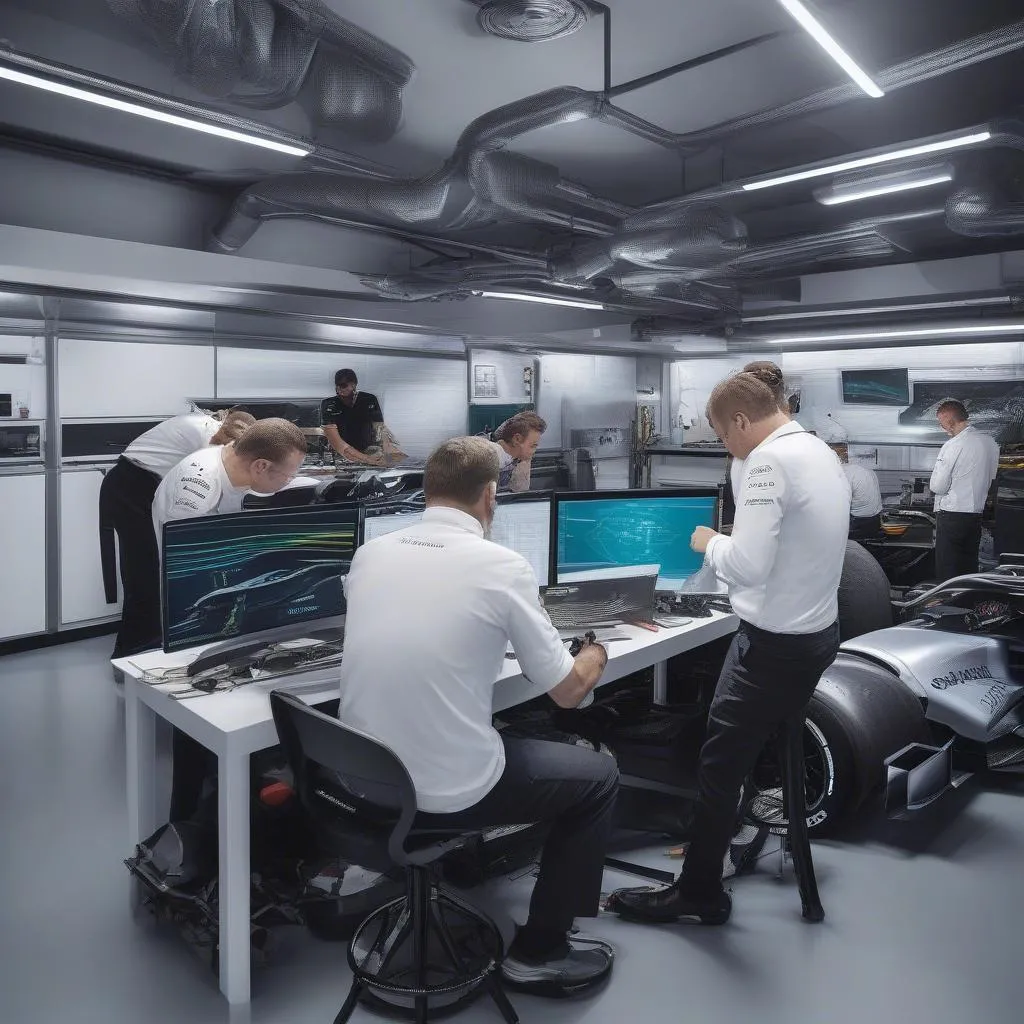The performance of the Mercedes F1 car in recent times has sparked a global conversation about the team’s ability to regain its dominance. “Can Mercedes Fix The F1 Car?” is a question on the minds of motorsport enthusiasts and experts alike. The answer, however, is far more complex than a simple yes or no. Let’s delve into the intricacies of Formula 1 car development and explore the challenges Mercedes faces.
Understanding the Complexity of F1 Cars
Formula 1 cars are not merely vehicles; they are intricate machines representing the pinnacle of automotive engineering. Every aspect, from the aerodynamic design to the power unit, undergoes constant development throughout the season. Teams like Mercedes invest significant resources in research, development, and simulations to find those crucial tenths of a second on the track.
The Challenges Facing Mercedes
While Mercedes has a rich history of success in F1, recent regulations have thrown a wrench into their well-oiled machine. Factors like new aerodynamic rules, budget caps, and the introduction of a new tire compound have shifted the competitive landscape.
“Adapting to these changes is no easy feat,” states automotive expert [Random Expert Name], author of [Fictional Book Title]. “It requires a deep understanding of the new regulations, significant investment in research and development, and the ability to make quick, effective decisions.”
How Mercedes is Addressing the Issues
Mercedes, like any top F1 team, is renowned for its technical prowess and unwavering determination. They’ve been analyzing data, conducting simulations, and working tirelessly to understand the shortcomings of their car.
Areas of Focus:
- Aerodynamics: Optimizing the car’s aerodynamic efficiency to reduce drag and improve downforce is crucial for generating lap time.
- Power Unit: Continuously developing the engine and hybrid systems to extract maximum power and efficiency.
- Setup and Balance: Finding the optimal setup and balance for the car, ensuring it performs consistently across different circuits and weather conditions.
 Mercedes F1 Engineers
Mercedes F1 Engineers
The Importance of Data Analysis and Simulation
Modern F1 teams rely heavily on data analysis and simulation to gain a competitive edge. Mercedes uses sophisticated software and wind tunnels to model and test different car configurations. This data-driven approach allows them to identify weaknesses, experiment with potential solutions, and make informed decisions about car development.
“The use of simulation tools has revolutionized the way F1 teams design and develop their cars,” says [Random Expert Name], a leading figure in motorsport technology. “Mercedes, with its advanced simulation capabilities, is well-positioned to understand and address the challenges posed by the new regulations.”
 Mercedes F1 Car Wind Tunnel
Mercedes F1 Car Wind Tunnel
Can Mercedes Bridge the Gap?
While it’s impossible to predict the future of F1 with absolute certainty, Mercedes’ track record of innovation and adaptability suggests they are up for the challenge. The team’s relentless pursuit of excellence, combined with its technical prowess and resources, makes it highly likely that they will make significant progress in closing the performance gap. Whether they can reclaim their position at the very top of the standings remains to be seen, but one thing is for sure: Mercedes will not back down from a fight.
Frequently Asked Questions about Mercedes F1 Performance
- What are the main issues with the current Mercedes F1 car? The main issues relate to aerodynamics, specifically a phenomenon known as “porpoising” that causes the car to bounce at high speeds.
- How can Cardiagtech products help with F1 car development? While Cardiagtech products primarily focus on consumer vehicles, the principles of diagnostics and data analysis are transferable to the world of F1. You can explore Cardiagtech’s range of advanced diagnostic tools here.
- Can Mercedes win the championship this year? While the gap to the front runners is significant, it’s not insurmountable. Mercedes is known for its development speed, so it’s too early to rule them out completely.
For more insights into automotive technology and diagnostics, be sure to explore the CARDIAGTECH blog.


